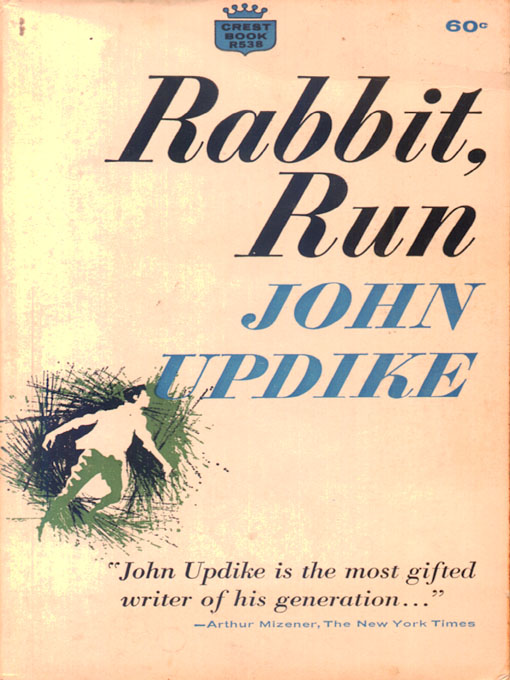

And character, in Updike, is always complex. But that focus on the prose tends towards an idea of Updike as a purveyor of beauty without substance, whereas in fact, his writing, however lyrical, is always at the service of character. You see a lot of adjectives attached to descriptions of Updike's prose – shimmering, burnished, that kind of thing – and indeed, he is the greatest stylist in American literature, greater even than Faulkner or Fitzgerald. When people talk about Updike, they tend to mention first off, the prose. When I found out that there were two prequels to that book, I was simultaeneously dismayed – like someone who realises he has somewhat spoiled Back To The Future's 1 and 2 by watching 3 first – and excited, because it meant there was so much more yet to read.

But I didn't know that when, in WH Smith in Brent Cross circa 1988, I picked up Is Rich, read one sentence and thought "well obviously I'm buying this".

It's four books – four and a half, if you include the late novella, Rabbit Remembered – each one written at the end of a decade, between 19: Rabbit, Run, Rabbit Redux, Rabbit Is Rich and Rabbit At Rest.


 0 kommentar(er)
0 kommentar(er)
